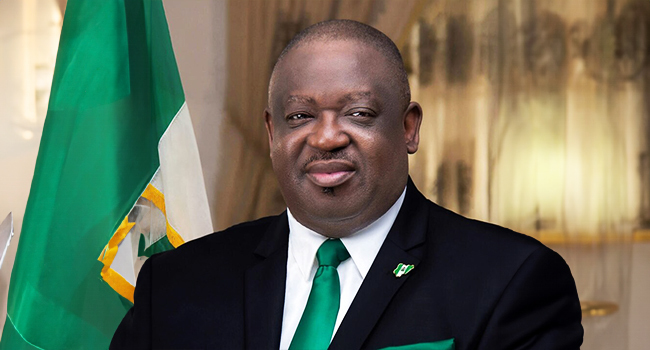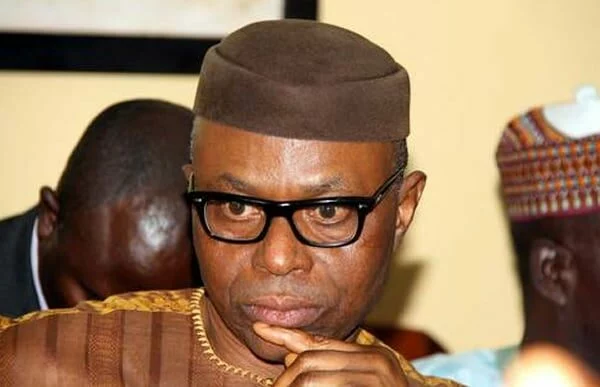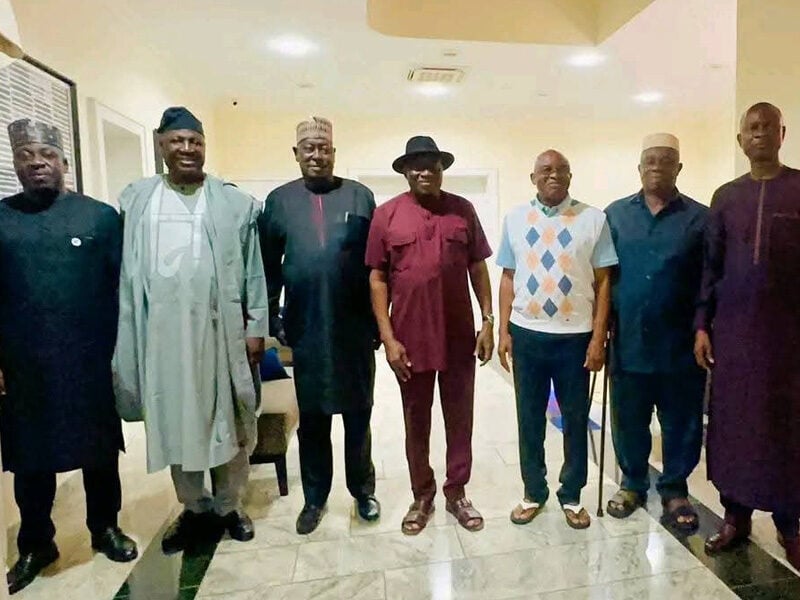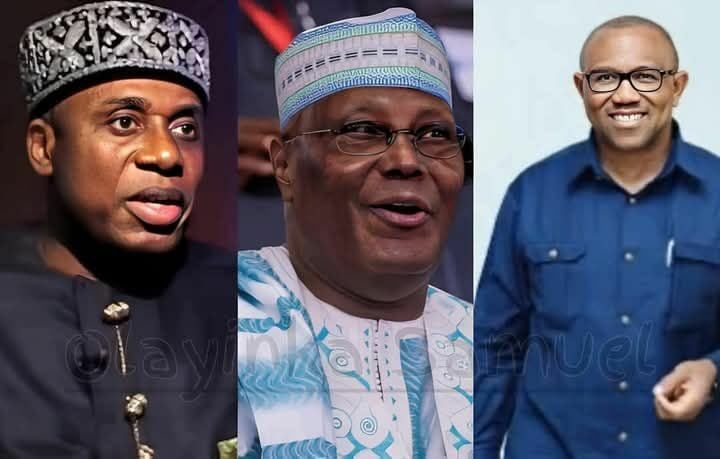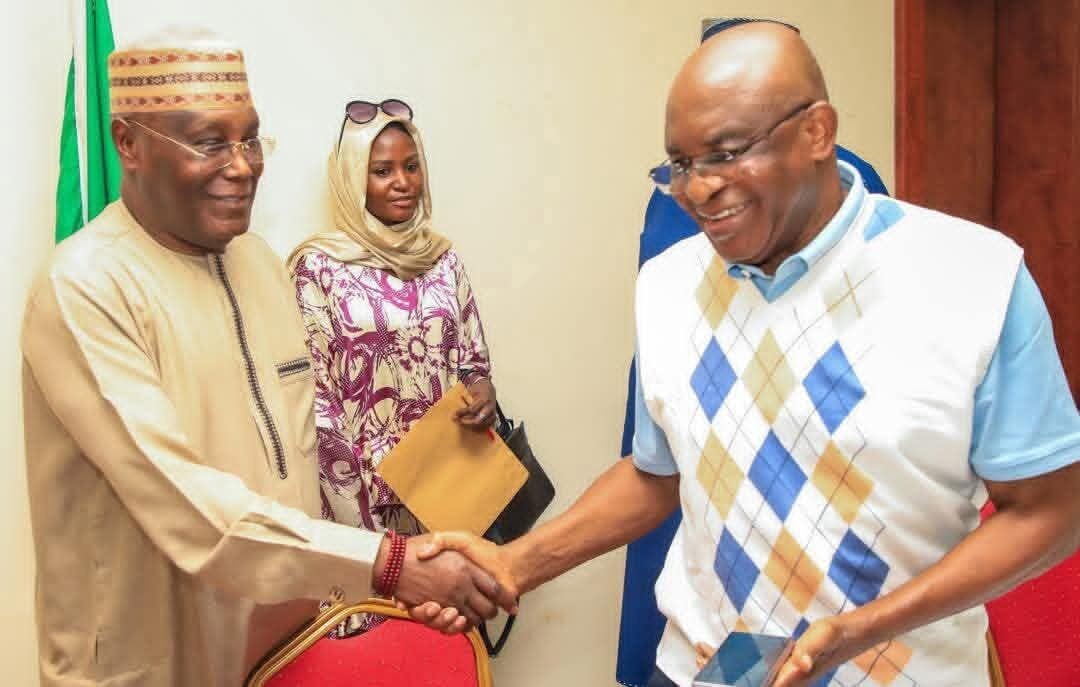Democracy Under Threat? APGA Founder Warns Against One-Party Rule in Nigeria
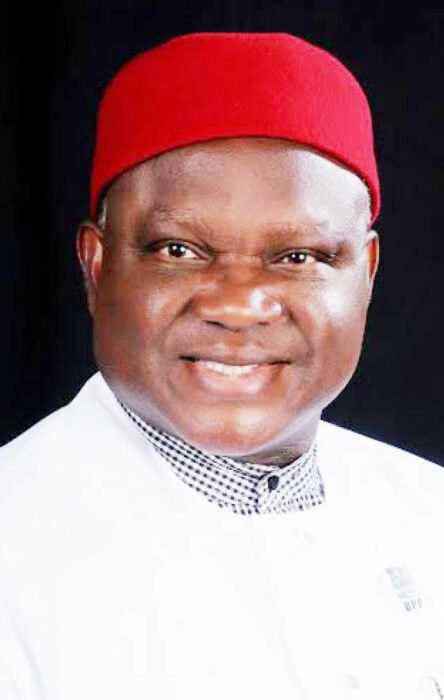
Nigerian political discourse is currently dominated by critical examinations of party structures, governance efficacy, electoral integrity, and constitutional reform. These discussions often highlight the deep-seated challenges facing the nation's democratic processes.
The People's Democratic Party (PDP) has experienced a significant decline since its loss in the 2015 presidential election to the All Progressives Congress (APC). This 'free fall' has been particularly evident in the Southeast, where members reportedly suffered substantial losses due to the party's perceived disrespect and insensitivity to regional demands. The party's extended period in power before 2015, under a weak electoral system, led to lethargy and a lack of preparedness for an opposition role, contributing to a continuous erosion of its internal cohesion and disciplinary machinery. Despite concerns, fears of Nigeria sliding into a one-party state are largely dismissed as unwarranted. The nation's vast size, heterogeneity, multi-religious, and multi-ethnic composition inherently resists such a system, with its founding fathers having negotiated independence on the basis of multi-party democracy. Any attempt to impose a one-party state is seen as a recipe for unimaginable anarchy.
A core issue in Nigerian politics is the inability of political parties and elected leaders to fulfill promises and maintain accountability. This problem is deeply rooted in the "obnoxious" 1999 constitution and a weak electoral system that effectively denies citizens their inalienable sovereignty to freely recruit and hold leaders accountable. Attempts by the Federal Government and National Assembly to address these defects have been criticized as half-hearted and insincere. The possibility of political parties returning to an era of ideological operation, rather than personal or regional interests, is contingent on enabling laws and regulations. These reforms should not restrain parties in formulating manifestos or mandate national spread as a condition for registration, allowing for area-specific ideological inclinations akin to the first republic parties like NPC, NEPU, and UMBC.
The incumbent APC federal government faces widespread public discontent, with the overwhelming majority of Nigerians reportedly reeling under the burden of its economic and social policies. The perceived mismanagement of the country's diversity has deepened ethnic and religious consciousness, fostering a general sense of alienation among certain sections of the populace. Looking ahead to the 2027 presidential election, the political landscape is seen as highly fluid. Peter Obi, the former Labour Party Presidential Candidate in 2023, is believed to be actively marketing himself domestically and internationally, with expectations that he will build on his previous momentum. However, he is advised to clarify his political party affiliation without delay, especially given the ongoing wave of defections. The Tinubu administration is perceived as unpopular, with many of the celebrated defections coming from the South, while the North's strategic movements are yet to unfold. The ADC is also presented as a potential platform, and Peter Obi is seen as a force that could surprise both major parties.
Electoral reforms and constitutional amendments are deemed crucial for Nigeria's future. The new INEC Chairman, Professor Joash Amupitan, is given the benefit of the doubt, with his initial statements offering reassurance for credible and transparent elections. Critical constitutional amendments include devolution of power, mandatory use of technology in elections, a reviewed revenue allocation formula to grant sub-nationals greater resources, and enhanced citizenship rights and enforcement, including state and community policing. There is confidence that the National Assembly may address the most critical of these, especially making electronic transmission of results mandatory and shifting the onus of proof to INEC. While a holistic constitutional change is preferred, acknowledging the 1999 constitution's shortcomings, the current government is not disposed to such comprehensive reform, making piecemeal amendments the more likely path forward until leaders truly chosen by Nigerians emerge.
Finally, the detention of Mazi Nnamdi Kanu draws strong condemnation. The Tinubu administration's perceived insensitivity to widespread appeals for his release and other prisoners of conscience is highlighted. Many Igbo leaders emphasize that Kanu's incarceration symbolizes the imprisonment of the Igbo people, referencing historical precedents of presidential prerogative of nolle prosequi as a viable path for his release, thus questioning the continuation of judicial rigmarole.
You may also like...
Consumerism vs Culture: Is Africa Trading Values for Trendy Lifestyles?

Is Africa trading its cultural values for trendy lifestyles? Explore how consumerism, foreign brands, and social media p...
The War on Boys: Are African Male Being Left Behind in Gender Conversations

Why are African boys and men often left out of gender empowerment programs? Explore how emotional suppression, lack of m...
Pay Slip, Motivation Slips: The Silent Crisis Among the Working Class

Across Nigeria, millions of workers are trapped in jobs that pay just enough to survive but too little to live. Beneath ...
Premier League's Unsung Heroes: Bournemouth, Sunderland, and Tottenham Shockingly Exceed Expectations

This Premier League season sees teams like Bournemouth, Sunderland, and Tottenham exceeding expectations. Under Thomas F...
El Clasico Fury: Yamal Controversy and Refereeing Blunders Ignite Post-Match Debates
)
Real Madrid secured a 2-1 El Clasico victory over Barcelona amidst significant controversy surrounding a late penalty de...
Kate Hudson & Hugh Jackman Eyeing Oscars with ‘Song Sung Blue’ Breakthrough

"Song Sung Blue" tells the true story of Mike and Claire Sarina, who find love and acclaim as a Neil Diamond tribute ban...
Pennywise Unleashes Horror: 'It: Welcome to Derry' Premiere Shocks Viewers

HBO Max's "IT: Welcome to Derry" plunges audiences into 1962 Derry, Maine, exploring the origins of Pennywise with a bru...
Zimbabwe's Ammara Brown Stages 'Spectacular' Comeback, New Album Imminent!

Ammara Brown triumphantly returned to the music scene at the Castle Lager Braai Festival after a year-long maternity bre...
